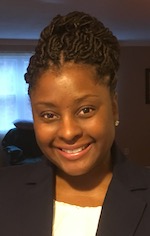This module is designed to introduce participants to the experience of engaging in a reflective supervisory experience. Participants will complete brief readings, videos, and reflective writing exercises detailing content about:
- The essential elements of reflective supervision
- Understanding the reflective stance and qualities reflective supervisees can adopt to make the most of reflective supervision
- Recognizing burnout and vicarious trauma as by-products of working with infants, young children, and families
- Developing self-regulation strategies to manage work-related stress and vicarious trauma, particularly in the absence of receiving reflective supervision
Learning objectives
- Define and understand the essential elements of a reflective supervisory relationship.
- Understand the roles diversity and power play in the supervisory relationship.
- Identify qualities the reflective supervisee needs in order to benefit from reflective supervision.
- Understand the “reflective stance.”
- Develop strategies for self-regulation to manage vicarious trauma.
Content author

Tanika Eaves, PhD, LCSW, IMH-E™, Assistant Professor of Social Work, Fairfield University Egan School of Nursing and Health Studies.
Dr. Eaves has a Bachelor of Arts in Psychology from Fairfield University, a Master of Social Work from Rutgers University, and a Doctor of Philosophy in Human Development and Family Science from the University of Connecticut. Dr. Eaves has been a Licensed Clinical Social Worker for over 20 years, and holds the CT Association for Infant Mental Health Endorsement as an Infant Mental Health Specialist. Her professional experience includes: child and family guidance clinics, early intervention programs, early childhood mental health consultation, policy work, parent-infant psychotherapy, and training/consultation with home visiting clinicians. Dr. Eaves research investigates individual and organizational factors related to workDr. Eaves has a Bachelor of Arts in Psychology from Fairfield University, a Master of Social Work from Rutgers University, and a Doctor of Philosophy in Human Development and Family Science from the University of Connecticut. Dr. Eaves has been a Licensed Clinical Social Worker for over 20 years, and holds the CT Association for Infant Mental Health Endorsement as an Infant Mental Health Specialist. Her professional experience includes: child and family guidance clinics, early intervention programs, early childhood mental health consultation, policy work, parent-infant psychotherapy, and training/consultation with home visiting clinicians. Dr. Eaves research investigates individual and organizational factors related to work-related stress management amongst frontline and supervising infant mental health practitioners.
Intended audience
Practitioner, Decision Maker
Knowledge and competency areas
Cultural Humility, Self-Awareness
additional information
- Module takes 3 hours to complete.
- In addition to private assignments, participants will engage in learning through posts to discussion boards and video recorded responses.
- Student receives a 3-clock-hour certificate of completion.
- The knowledge competency areas in this module have been assigned by the Alliance for the Advancement of Infant Mental Health and meet IMH-E®/ECMHE® training and renewal requirements.
- Access to module is good for one year, starting on the date of registration.
Cost and registration
Individual registration
- Cost for individual registration: $90 per module
- Sign up for all 10 modules at the same time and receive a $50 discount. Use discount code CEED10.
- Individuals must pay with a credit card.
- Your registration receipt includes login instructions for the module site, using the guest ID and password you will create during registration.
- No cancellation refunds or substitutions.
- If your organization wishes to pay by check, please email ceedregister@umn.edu.
Group registration
- For options, please visit our group registration page.
- Group costs decrease as group size increases.
- No cancellation refunds or substitutions.
Questions? Email us.


